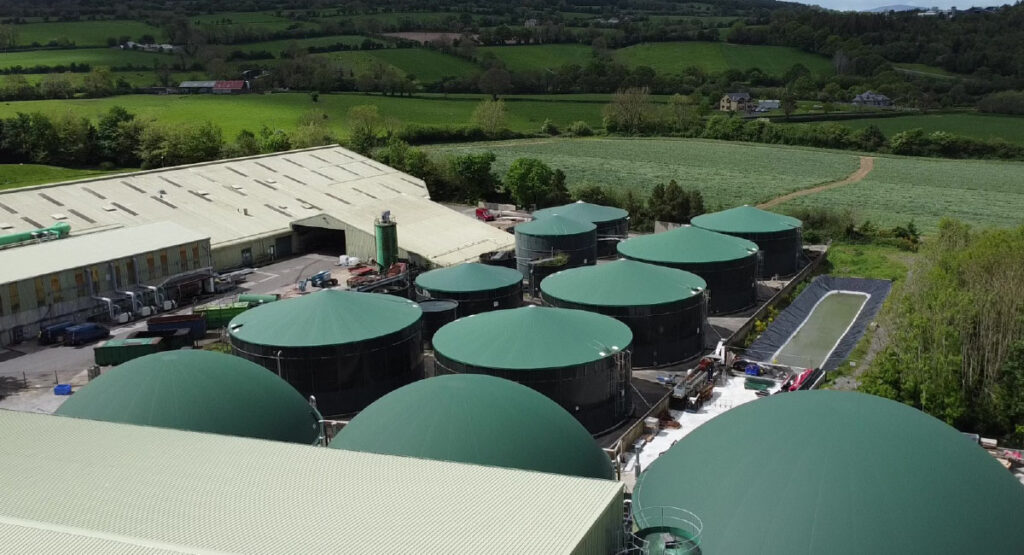A new report from the South East Energy Agency (SEEA) reveals that bio-meth-ane could fulfill 47% of the Southeast’s energy needs and create 240 jobs in the region.
Unveiled at their AGM in New Ross, the report highlights the potential to generate 6.7 Terra Watts per hour of biomethane, surpassing national targets.
This would be a key solution for decarbonizing transport.
The SEEA is calling on the government for operational support to develop this indigenous renewable fuel industry and address regulatory challenges.
The report underscores biomethane as a primary renewable energy source capable of generating up to 47 % of the southeast region’s energy needs. It finds that developing a robust biomethane industry could create 240 direct clean energy jobs in the Southeast and positions biomethane as a key solution for decarbonising transport and achieving our net-zero goals.
The study, conducted by not-for-profit organisation South East Energy Agency (SEEA) in 2022/23, examined the available and existing resources in the South East to increase Ireland’s Biomethane production.
The key findings from the report include
1. Potential to generate 6.7 TWh of biomethane, enough to meet 47% of the South-East’s energy needs, surpassing the national target of 5.7 TWh set out in the National Biomethane Strategy launched on May 28th.
2. Developing a robust biomethane industry could create 240 long term direct clean energy jobs in the energy and agriculture sector in the South-East and support hundreds of additional jobs in planning, development and commissioning .
3. A clear opportunity to establish 19 Bio-CNG stations to reduce transport dependency on imported fossil fuels.
4. The potential for compressed tankered gas delivery of biomethane, enabling SMEs and the public sector to replace traditional oil and gas boilers with biomethane-ready systems.
Paddy Phelan, CEO, South East Energy Agency, commented, “The report this morning highlights an incredible opportunity to create a self-sufficient energy landscape in Ireland. It underscores the importance of embracing biomethane, supporting in parallel the national renewable electricity acceleration programme , to drive Ireland’s sustainable energy ambitions.
The southeast could increase its electricity demand from 25% towards 60% of total energy and most of that could be provided from renewable electricity on and offshore. The balancing hard to decarbonise 40% can be provided through Biomethane for those harder to decarbonise sectors of Industry, transport and heating.”
“We see two clear pathways for the Southeast,” He explains, “While Bio-CNG refuelling stations would support heavy goods vehicles in the shift to low-carbon transport, this locally produced green gas solution also provides a direct and affordable way for SMEs and public sector entities to decarbonise their heating systems.”
“A straightforward solution,” said Phelan. “Is replacing old oil or gas boilers with a new gas boiler commissioned to burn green biomethane, businesses and public sector facilities can immediately cut their carbon emissions as we’ve seen at Wexford Fire Station and Kilkenny Machinery Yard Depot.”
Ireland is currently ranked last on the EU leader board on overall share of renewable energy 13% usage. 4 To fully realise the potential of biomethane, SEEA has outlined three critical actions the Government must take.
1. The key first step is to provide financial-viability operational support for biomethane production rather than meagre 20% capital grant schemes.
2. A clear, actionable Renewable Heat Obligation Scheme to incentivise the switch to biomethane for heating systems in SMEs and public sector buildings.
3. The government must address regulatory obstacles and planning challenges, while also focusing on public perception by highlighting the natural circular economy benefits of biomethane.
Paddy Phelan concluded, “The National Biomethane Strategy is a great start, but to truly achieve our energy goals, the government must support the operational costs of transitioning to renewable fuels. This is particularly important for the Southeast, where we have the potential to exceed the national biomethane target and lead the country in energy independence.”
For more information on Ireland’s biomethane potential, visit the SEEA website, southeastenergy.ie

